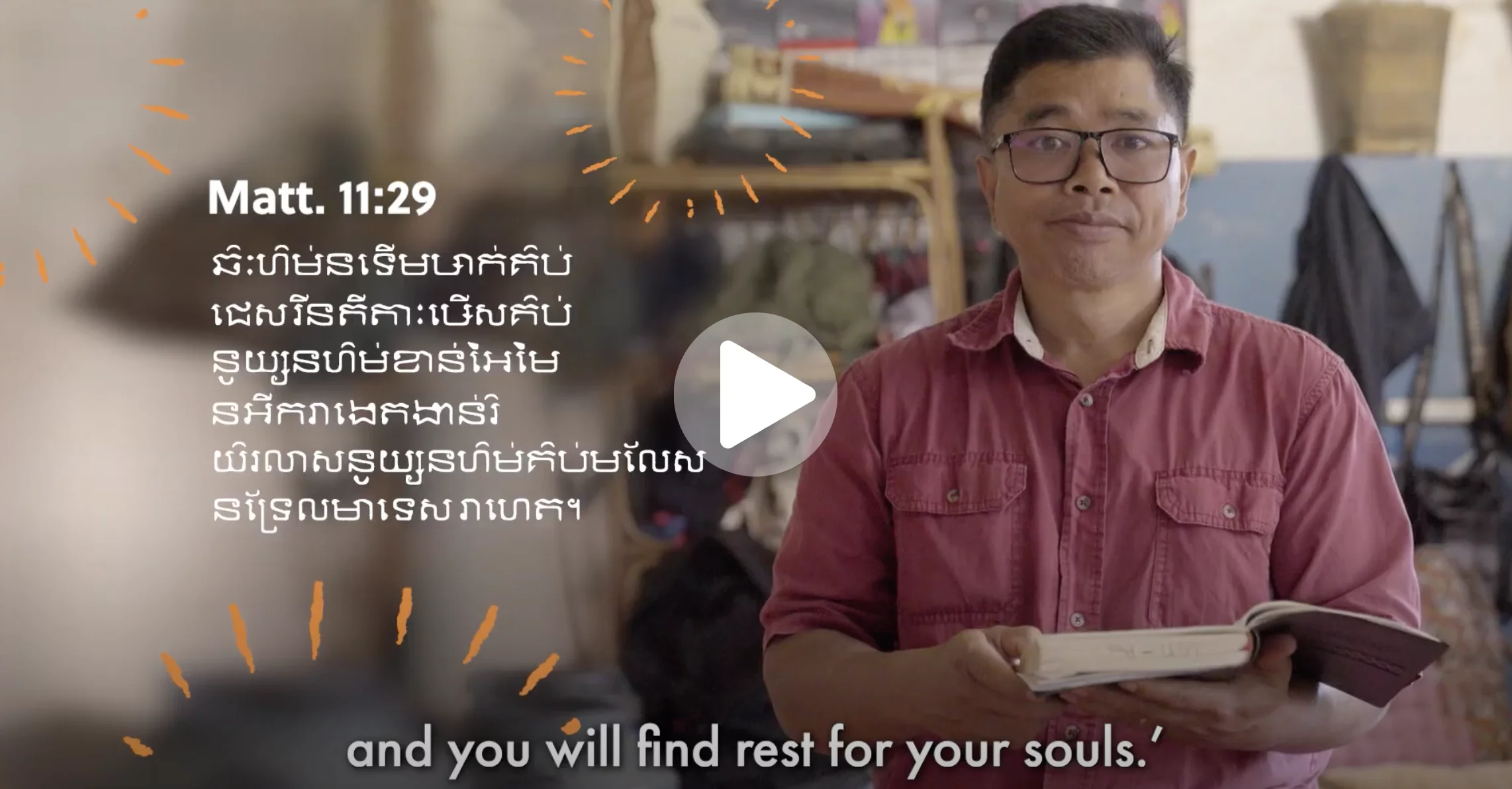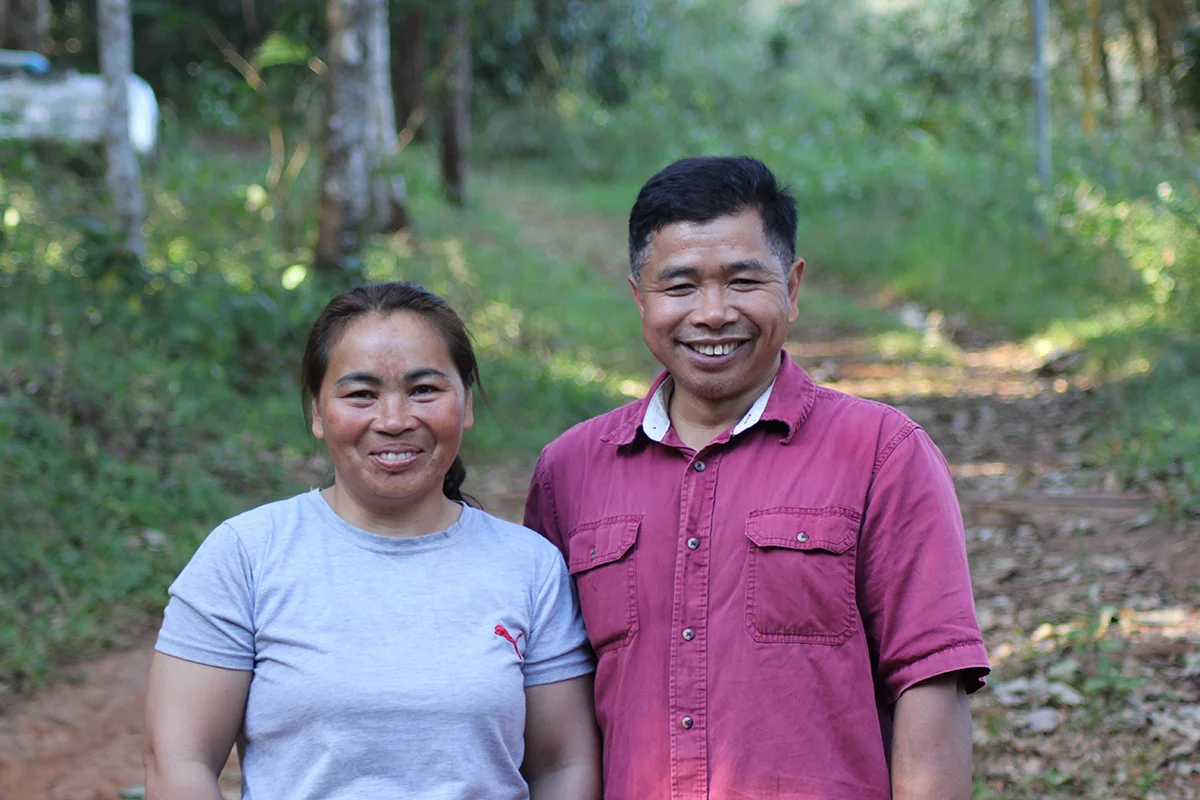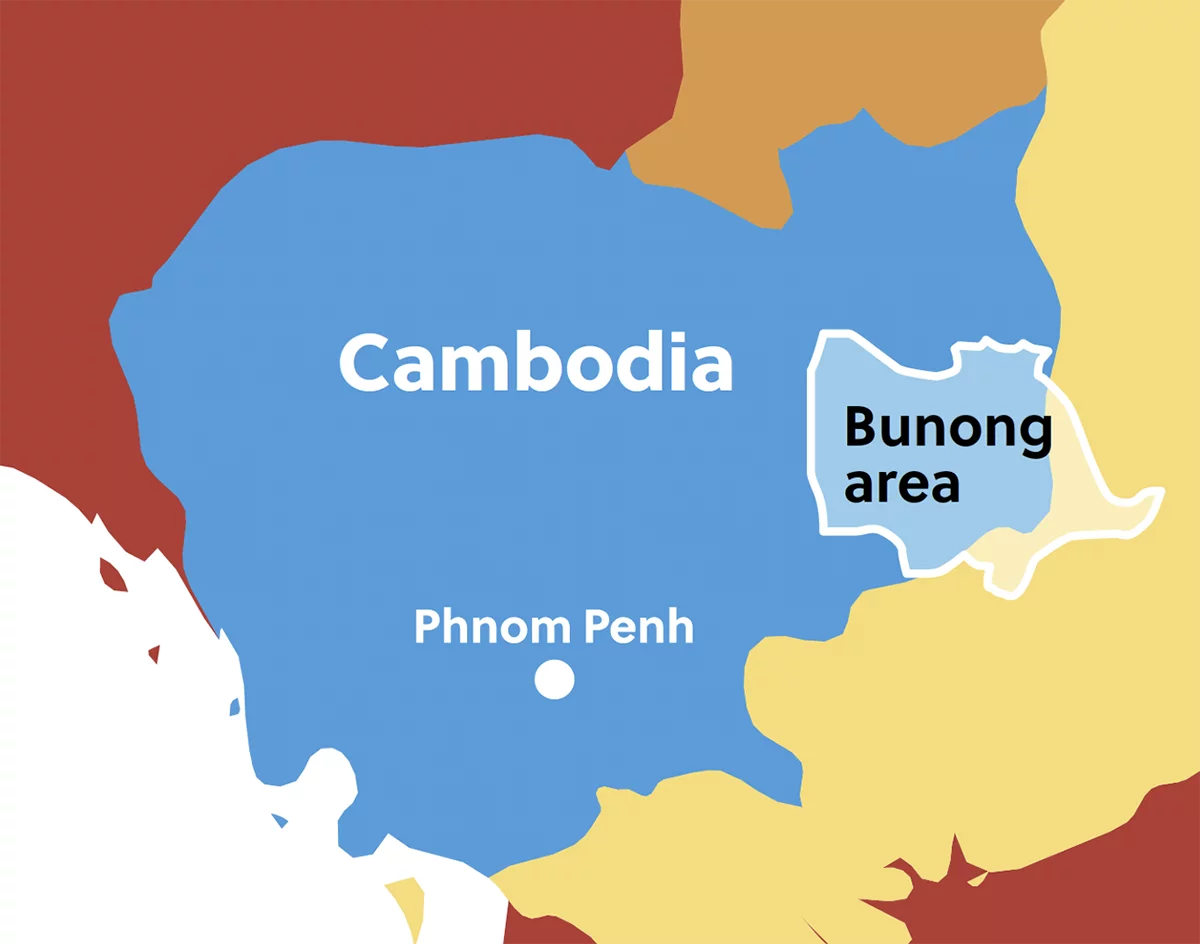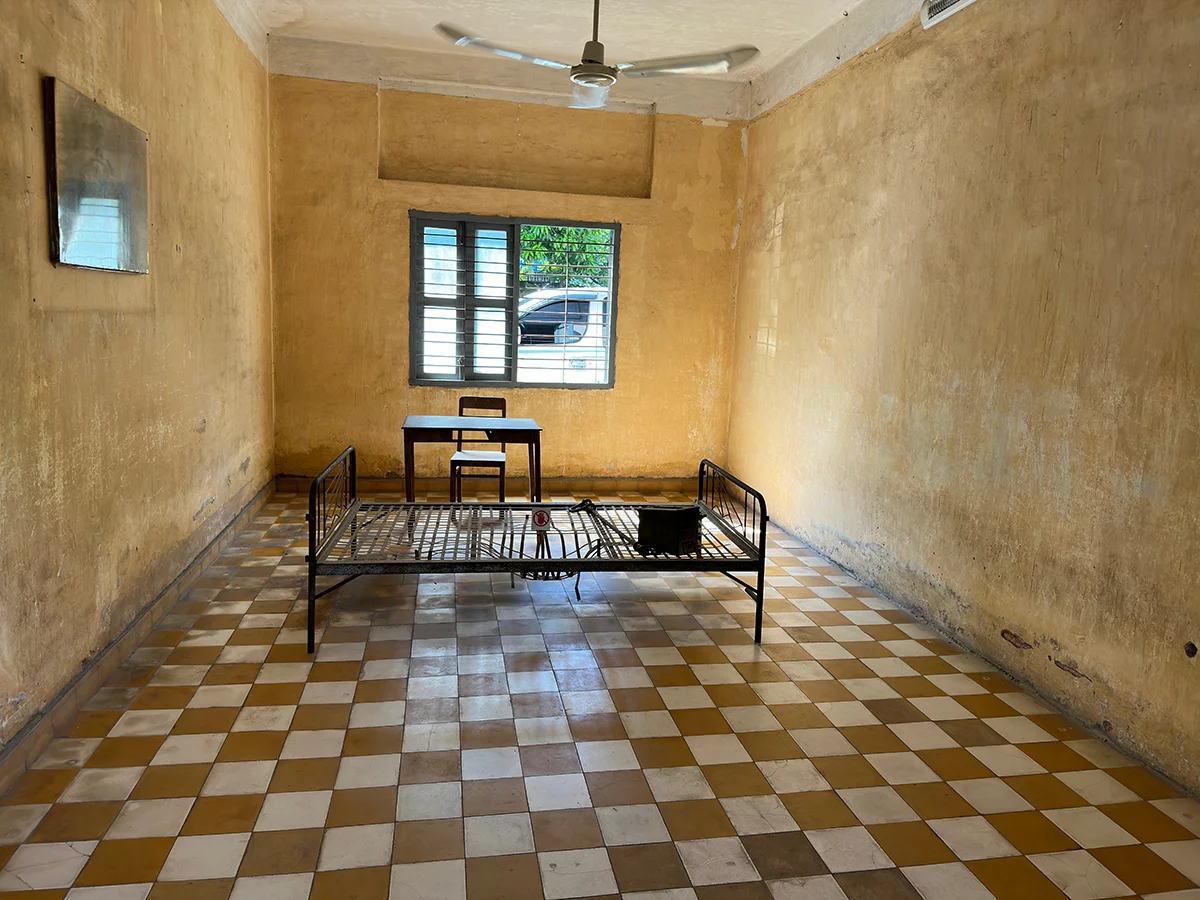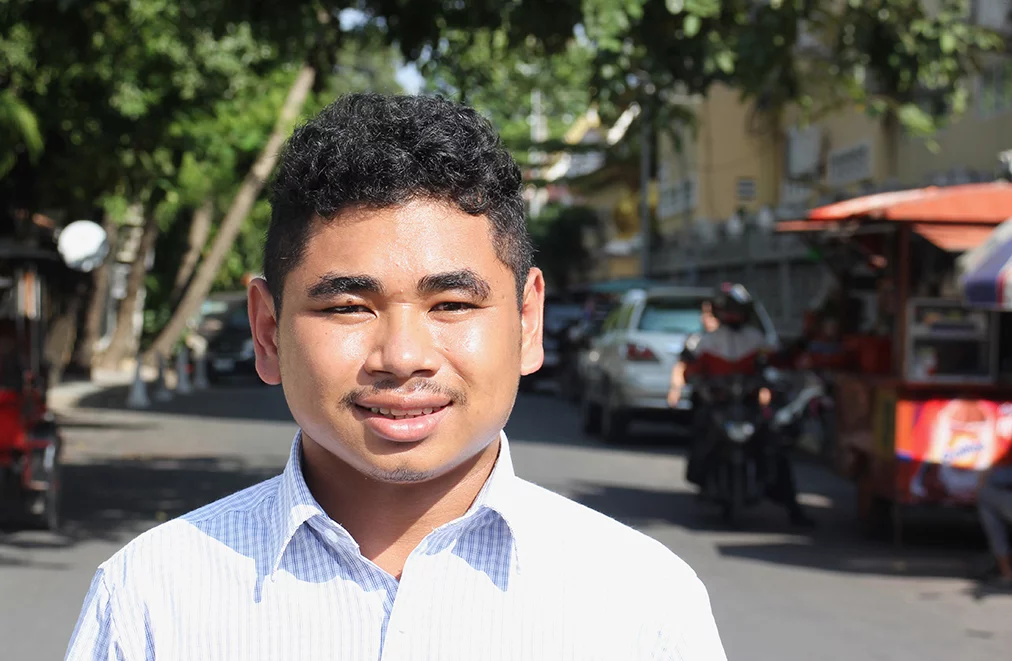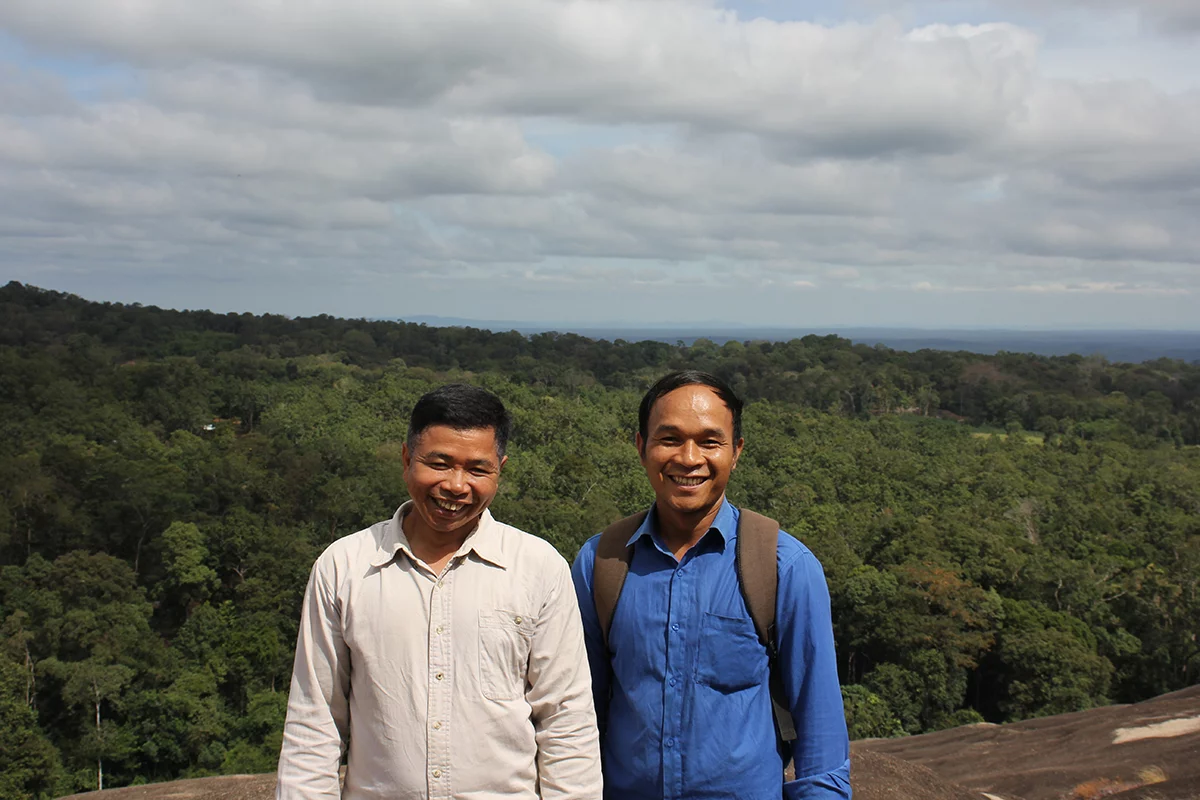A number of years later the Cambodian army was recruiting, so when he was 16 Lonh became a soldier. During the decade he was a soldier, Lonh learnt to read and write Khmer. Learning to read meant he was able to read the Bible – and that changed everything.
‘There were no Bunong Scriptures at that time, so I read the Khmer New Testament,’ Lonh explains. ‘I read about how God forgave our sins, commanded us to follow him and have faith in him. It was then that I believed and followed him.’
Heartbreak and hope
While he was in the army, Lonh married Me Kha and he moved to the village she was from. ‘We had a son, but he died after two months. Then we had a daughter, but after giving birth, my wife was continuously sick,’ Lonh recalls. ‘So I stopped working as a soldier to take care of her. But there wasn’t medicine like we have now, so she didn’t recover and then she passed away.’ Lonh’s daughter survived and is now married and has three children of her own.
While he was caring for his first wife Lonh began to work as the youth leader at the church in his wife’s village. Later, when the people saw his ability to teach, Lonh became the head pastor of the church. While he was a pastor Lonh married Din. ‘I knew my second wife because her house was in the village, so we saw one another often,’ Lonh remembers. ‘The elders agreed the marriage was a good marriage, so we got married.’


